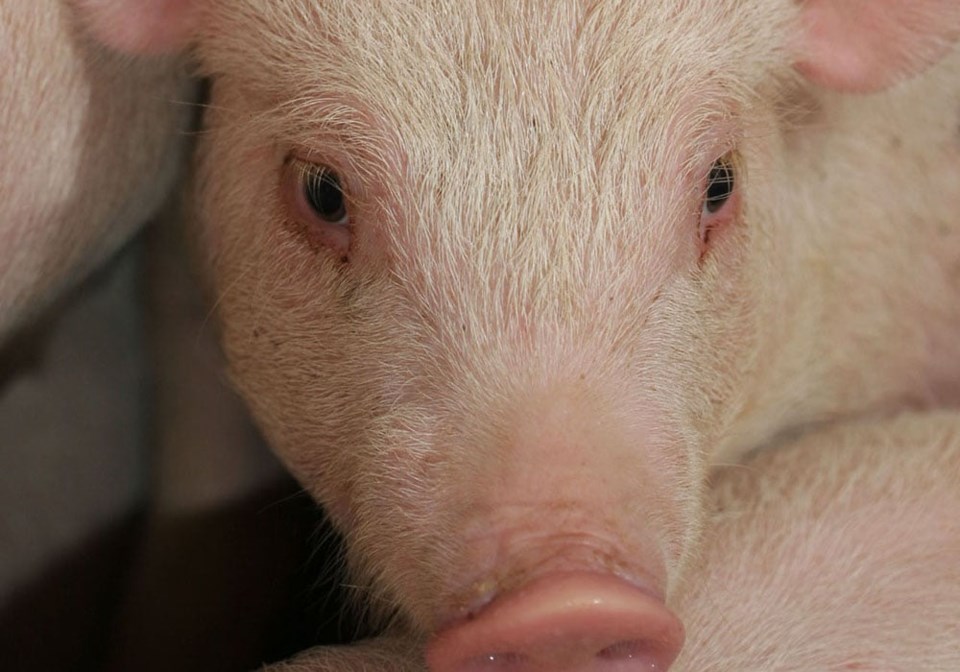WESTERN PRODUCER — The global pork market is like a herd of cats.
It’s going off in a bunch of different directions, can be extremely different from individual to individual, and defies easy understanding.
Yet Canada’s pork producers must be sensitive to its idiosyncrasies if they hope to thrive in a future that is becoming more and more foreign-based.
“Exports are fundamentally important to our market,” said University of Alberta agricultural economist Ellen Goddard at the Manitoba Swine Seminar.
“What goes on in… other markets of the world is going to drive the economic success of our pork industry.”
That’s because Canada’s pork consumption is stagnant or relatively declining, while foreign pork consumption has been growing.
That’s particularly true of Asia, which favours pork as a meat source and has seen huge increased demand from China in particular. Without that demand, Canada would have trouble moving its mountains of pork.
“In the longer term, given the importance of pork globally… is that going to remain a huge (demand) driver… or are supplies going to adjust in Asia, in a way we will not see export (demand) in the future?” said Goddard.
“How temporary is this huge demand for pork?”
Overall, Goddard sees lots of support for future pork demand from much of the planet. More countries in the world are protein deficient than protein-sufficient, so there shouldn’t be any lagging of total protein demand.
Pork is popular and relatively affordable compared to other meat in many parts of the world.
Recent calls from environmental organizations and activists for consumers to reduce their meat consumption aren’t likely to be embraced in developing countries in which protein consumption is insufficient and where pork is still affordable compared to other options.
“Livestock products are still an affordable way of providing protein in diets in many parts of the world,” said Goddard.
“We have to remember they’re talking about us. They’re not talking about the entire world where we have these significant protein deficiencies.”
However, foreign pork markets differ from country to country. In Germany, for example, humane and environmental concerns rank high with consumers, while in many other countries they are trumped by price or quality concerns.
Each market has its own particularities, which morph with time.
“This is something we have to monitor on a regular basis as to how these attitudes are evolving, particularly if we’re going to be depending upon export markets,” said Goddard.
The domestic market is also a complex cat, if a more disappointing one. Consumption has been flat, while poultry demand and consumption have been surging.
Pork demand remains solid, but it isn’t benefitting as it once did by being the most affordable protein, Goddard said. Canadian consumers don’t seem to be boosting their pork consumption much when prices fall, so that avenue of clearing overproduction is weakening.
“Our consumption is getting relatively immobile,” said Goddard.
The hype over plant protein, which became a national story in the pandemic, is mostly just hype so far.
“I think it’s rubbish,” said Goddard about predictions that plant protein would replace meat in consumer diets.
“The vast majority of people are still in the curious phase. I don’t see any evidence that in our populations people are rushing from one to the other.”
Cellular protein, often known as “lab-grown meat,” is just a theoretical competitor right now.
“We don’t know anything about how consumers are going to respond,” said Goddard.
Consumers have contradictory views on a number of food industry issues, such as gene-editing. Sometimes the way a question is asked has a big effect upon the answer.
Goddard was alarmed by survey results that showed that many consumers do not support livestock being vaccinated for diseases, even though they seem concerned about animal health.
Many seem to not have realized that animals are vaccinated. This misunderstanding needs to be remedied.
“We depend on vaccination for all sorts of things in our livestock industries. I don’t think we’ve been communicating to the public the importance of vaccination enough,” said Goddard.
When it comes to antibiotics, consumers don’t want profligate use as growth-promoters, but support use for medical reasons.
“They want animals treated if they need it. They’d like us to be a little more concerned about how need is defined,” said Goddard.
Environmental issues are becoming a bigger and bigger deal around the globe, so producers should expect to face more scrutiny on those issues in the future.

